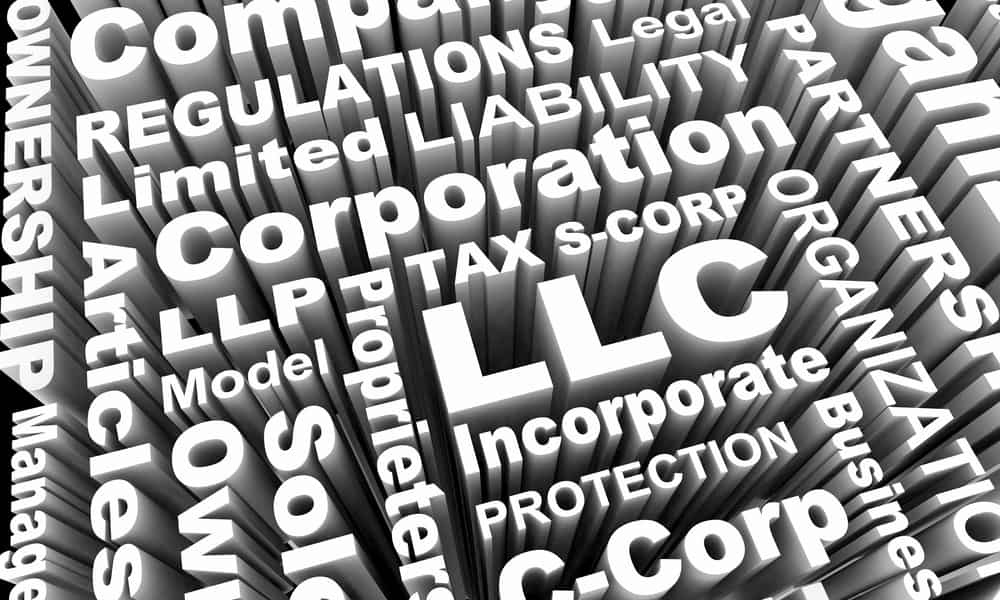Private limited liability companies are the best ways for individuals to protect their assets. A private LLC offers members protection from lawsuits, as individuals that sue the company don’t have access to members’ assets for settlement. However, the protections provided by an LLC aren’t as straightforward as you’d think. Here, we’ll look at the protections that an LLC offers to business owners, and what can be done to bypass those protections.
Private and Public Companies
A private LLC differs from a public corporation in several ways, although not in the limitation of liabilities. As The Houston Chronicle tells us, a private LLC is different from a public company because of its profit distribution and the limitation of liability to shareholders and members. The limit on penalties only ensures that the owners and members can keep their assets separate from the company’s assets. All this stems from how the law sees companies such as LLCs.
An Entity Unto itself
The law considers an LLC as its distinct entity, separate from the owners. However, it’s an important distinction to note that corporations didn’t always provide their owners with liability protection. According to Phillip Blumberg in his book Limited Liability and Corporate Groups, the US still had direct shareholder liability heading into the nineteenth century. As the nineteenth century progressed, the legal system grew to accept that, unless the shareholders were explicitly stated to be liable for specific actions, they were exempt from liability for the company’s activities. Additionally, certain states enacted statutes that enshrined this protection for corporations’ shareholders and members during that time.
How Does Limited Liability Fail?
The most common case of a company’s limited liability being unable to protect its members stems from improperly forming an LLC. Contrary to many business owners’ beliefs, holding an EIN for a business does not mean that the company exists. Before an LLC can be incorporated, the procedure must be followed in full. Attaining the EIN is one of a handful of steps that must be taken. Others include filing the articles of incorporation and setting up the business’s bank accounts. Without these steps, the LLC is not even considered a legal entity and does not provide any protection to its members or shareholders.
Negligence is another way that liability can fall onto the shoulders of members or shareholders. If an owner were to offer services to a business or individual and were found negligent after the fact, the suit would apply to the company and the owner separately. If the owner were to offer their guarantee for business debts, the limited liability does not extend to cover protection against someone leveraging this personal guarantee. The most common situation where personal security comes into play is in startups. Many investors prefer having the owner’s assurance that their investment will be wisely used to further the business’s prospects.
Some companies have been subject to “piercing the corporate veil.” The Balance SMB defines this term as a court’s action to hold individual shareholders responsible for the liabilities of a company. “Veil-piercing,” as it’s sometimes referred to, came about as a means of holding individuals accountable for the harm that their companies committed as a means of preventing injustice. For those considering forming an LLC to protect themselves from liability, this is a term they must be familiar with.
Courts that use this doctrine do so as an equitable remedy and would look at what damages would be fair in a particular situation. The court will examine several factors to determine if piercing the veil applies to a settlement. Among the points that the court may consider before piercing the veil are:
- Has the business foregone corporate formalities?
- Has funds and assets been commingled between owners/shareholders and the enterprise?
- Is the company undercapitalized?
- Is the company just an instrumentality, serving no other business purpose than as a shell company?
- Has there been fraud?
- Is this an environmental or tax issue?
In any of these cases, the court can decide to force the veil to hold shareholders or owners directly responsible for the business’s errors.
Private LLCs and Taxes
While you may be shielded from most of the liabilities associated with your LLC from a legal standpoint, you are still required to pay taxes to the federal government. LLCs are seen as “pass-through” taxation entities. The IRS sees them as a separate business entities, but there are no specific categories that the LLC falls into. As a result, individual members of the LLC must pay taxes based on their income and self-employment tax, depending on the state. While this might seem counter-intuitive reasoning, private LLCs are far better than public corporations since you still have to pay taxes. S-corporation members are required to pay taxes twice, once for the corporation and once as individual members. Depending on where the company is registered, the taxation regime might make it a better idea to run a private company since you’re only paying each tax only once.
Is an LLC Really a Good Idea?
If you’re looking at putting together an LLC to commit fraud and hope the liability protection would extend to you, an LLC won’t save you from the law. If, however, you’re looking at forming a company that ensures your assets are separate and apart from the company’s, you’re using an LLC correctly. LLCs can be powerful legal and financial instruments. They can be used to create holding companies that, if cleverly managed, can even reduce the amounts you pay in tax. They are also usable as investment companies. One of the world’s most prominent investment companies, Berkshire Hathaway, is a massive holding company incorporated as an LLC. If you go about using LLCs properly, you have nothing to worry about. However, if you don’t do your due diligence, you may find yourself in hot water.








